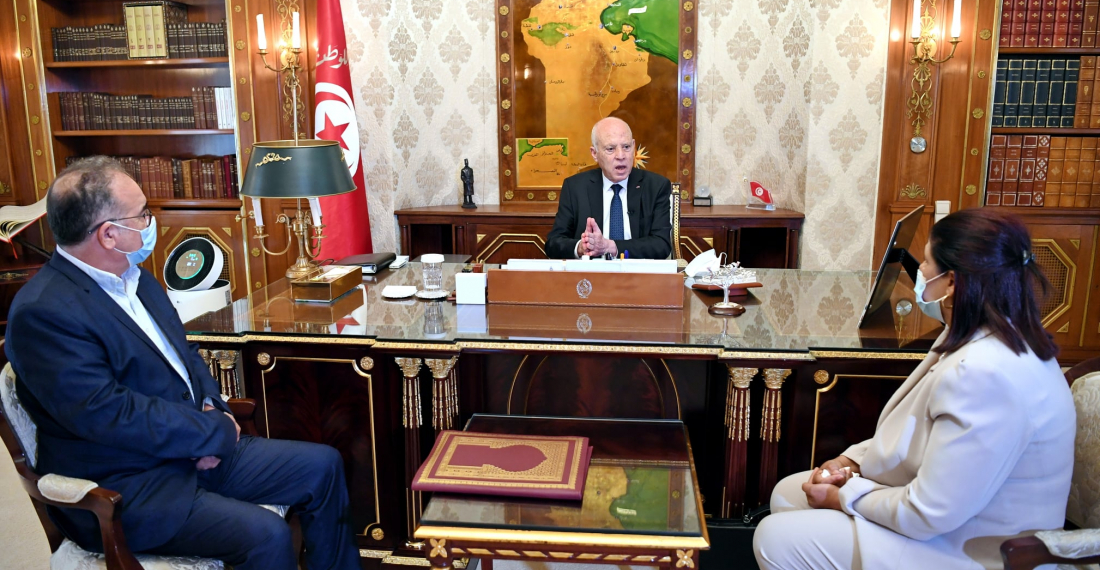On Thursday (20 August), Tunisia's president, Saïed, finally said that the composition of the new government will be announced in the coming days, according to a video footage published by the Tunisian presidency on its official Facebook page. The president announced it during his meeting with the minister of social affairs, Mohamed Trabelsi, and the manager of the ministry of the economy, finance and investment support, Sihem Boughdiri Nemsia.
Almost four weeks after taking power temporarily, Saïed has yet to appoint a new head of government. On 25 July, Saïed cited Article 80 of the constitution to "freeze" the parliament's activities for 30 days and dismiss the prime minister, an act which was characterised by the dominant party Ennahda as a "coup against the constitution and the institutions" and scrutinised by the international community, as several actors feared the events could compromise the country's democracy.
In the video published on Facebook, the president attacked those who talked about a coup: "How can we talk about a coup d'Etat on the basis of the constitution, and Article 80?" he wondered, referring to a peril that threatened the state. "What is most important, the absence of the state or the absence of the government for a short time so that things get back to normal, as the Tunisian people want," he continued, reassuring about the continuity of the State and its public services.
Reacting to those who talk about roadmaps to get the country out of its multiple crises, Saïed pointed out "concepts that come to us from abroad, that some repeat without knowing the meaning", adding that "the only road I would take, with the same determination and the same constancy, is that traced by the people".
Ever since 25 July, it has been difficult to anticipate the president's actions. The Tunisian people and the world are only kept aware of the changes that occur in the government through brief statements, such as the most recent one issued on Tuesday (18 August), in which Saïed appointed Sami Al-Hichri as director-general of National Security and Shukri Riahi as commander of the National Guard.
Additionally, the president's tone has hardened since he took power, notably regarding his desire to eradicate corruption, an issue he insists on at almost every outing. In line with this stance, several MPs and businessmen were banned from travel recently as part of a major anti-corruption campaign. Moreover, when he congratulates medical and military personnel on the success of open vaccination campaigns, he sends a spade to politicians. "We must also vaccinate the country of political bacteria", in his words.
Whilst Saïed's strategy for the future remains unclear, the Tunisian president seems persistently confident about his actions, which he continues to take without consulting the dominant islamist party Ennahda. Although the latter called for national dialogue shortly after Saïed took power, the head of state declared on Monday (16 August) during a visit to Tunis-Carthage airport that he will not discuss with those who speak of a coup to qualify his seizure of power, adding that there will be no going back.







